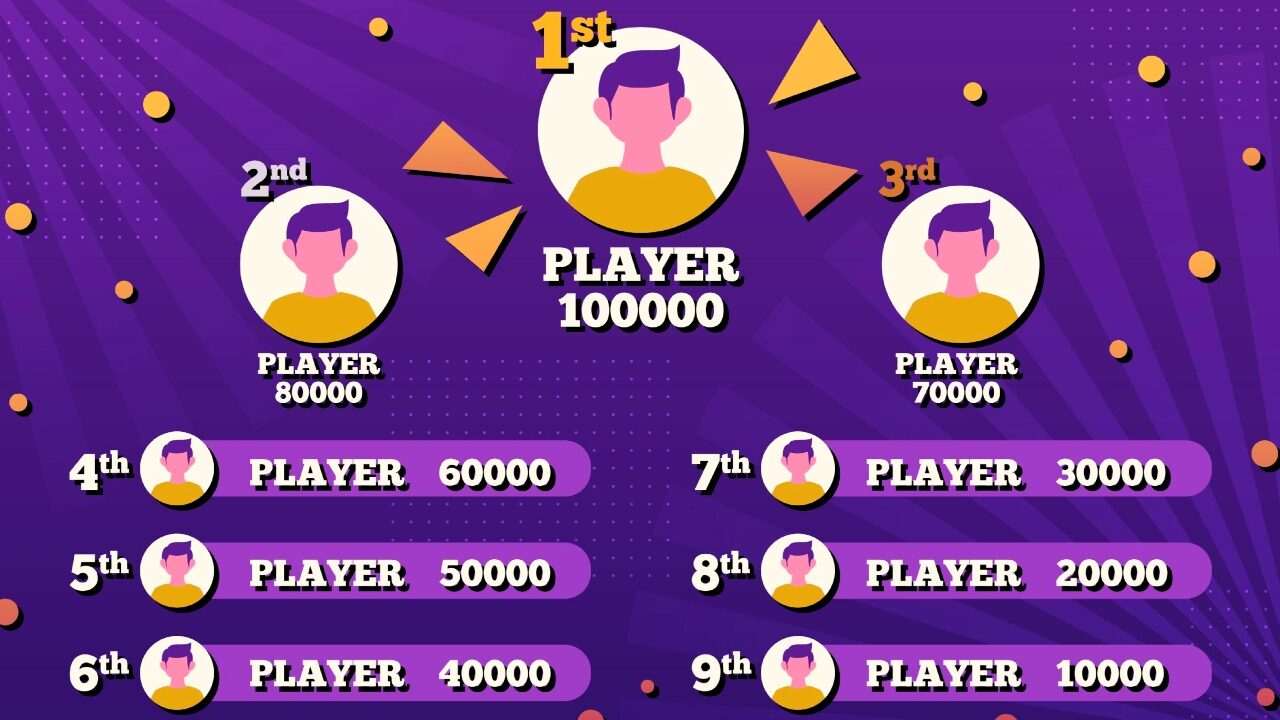Leaderboards? Oh honey, those relics from the 80s👾? Still clinging to life like a desperate gamer to their Doritos-dusted keyboard. Yeah, they were cool when Pac-Man was the peak of technology, but now? They’re basically participation trophies for try-hards. But sure, let’s pretend they’re still relevant in our sprawling online ecosystems where everyone’s a winner… or at least thinks they are. 🙄
Modern gaming leaderboards? Oh, you mean those meticulously crafted Skinner boxes designed to manipulate your fragile little ego? 😈 They’re not about bragging rights, darling; they’re about cold, hard data and maximizing player engagement. Developers are basically puppeteers, and you’re their little dancing marionette, hooked on the dopamine drip of seeing your name slightly higher on a list. It’s not about fun; it’s about retention, baby! 🤑
The Psychology Behind Competitive Rankings
Ah yes, psychology. Let’s psychoanalyze why people are so desperate for validation from strangers on the internet. Leaderboards tap into your pathetic need for achievement, recognition, and comparing yourself to others. Kindbridge says it enhances motivation? Sure, if you’re into that whole “feeling inadequate” thing. But hey, at least it gives you something to blame when you lose, right? 😭
The key to successful leaderboard implementation? Balance competitiveness with accessibility. So, basically, make sure everyone gets a participation trophy, even if they’re terrible. Valorant and League of Legends use tiered ranking systems to match players of similar skill levels? More like similar levels of toxicity. It’s all about creating the illusion of fair competition while secretly rigging the game to keep you hooked. 🎣
Emerging entertainment platforms are hopping on the bandwagon, too! Gamified sweepstake platforms? You mean gambling with extra steps? 😂 They’re combining dynamic leaderboard systems with the thrill of chance-based gameplay. It’s like they’re saying, “Hey, why not lose money and feel inadequate at the same time?” Progressive leaderboards? More like progressively disappointing. But hey, at least you’re involved! 🤡
Designing Leaderboards for Inclusive and Long-Term Engagement
A well-designed leaderboard goes beyond simple rankings? It creates incentive structures, fosters social interaction, and drives ongoing participation? Oh, you mean it manipulates you into playing more, making friends (or enemies) along the way, and never leaving the game? Got it. Adrian Crook says regularly refreshed leaderboards keep competition relevant? More like keep you addicted. 🤪
Reward tiers are equally essential. Systems that acknowledge a range of achievements, not just top scores, allow players at all levels to stay motivated? So, everyone gets a gold star, even if they just showed up? This broadens the appeal, preventing less experienced players from feeling shut out? More like preventing them from realizing they’re terrible. Social features deepen engagement? Nothing says “friendship” like trash-talking your way to the top. 😈
Leaderboards also fuel community interaction. Visible progress encourages players to join discussions, trade strategies, and compete collaboratively? You mean argue about who’s hacking and who’s just “good.” Immersion can be a decisive factor in gameplay focus? So, you need a fancy headset to hear all the insults clearly? Developers must ensure their systems are inclusive? Recognizing consistency, creativity, or teamwork? More like recognizing participation. It’s all about making everyone feel special, even if they’re not. 😇
Reigniting Interest Through Seasonal Leaderboards
One of the most effective long-term retention strategies in modern game design is the implementation of seasonal or time-limited leaderboards? Oh, you mean resetting everyone’s progress so they have to grind all over again? It’s genius! Rather than keeping a static list of top performers, developers now rotate ranking systems through defined intervals? It’s like a treadmill for your ego. 😂
Seasonal resets address one of the core challenges in competitive gaming: barriers to reentry? Without resets, returning players often feel discouraged from participating again if they’ve fallen too far behind? So, basically, if you suck, you’re out? By wiping the slate clean and offering themed seasons or limited-time modes, developers lower the entry barrier? More like create the illusion of a fresh start. This periodic structure allows both veterans and newcomers to compete on more equal footing? Until the veterans remember how to play and crush everyone again. 😈
Games like Apex Legends and Overwatch 2 are standout examples of this approach? In Apex Legends, each season introduces a new ranked series with its own rule tweaks and meta shifts, pushing players to adapt and compete anew? So, they change the rules just to mess with you? Overwatch 2 follows a similar structure, using seasonal updates to refresh hero balances and add incentives like exclusive skins or achievements tied to rank progression? Pay to win, anyone? 🤑
The Future of Competitive Gaming
As gaming continues to evolve, the role of leaderboards and competitive ranking systems will remain pivotal in shaping player experiences? So, we’re doomed to be manipulated by digital scoreboards forever? By understanding the psychological drivers behind competition and designing inclusive, engaging ranking systems, developers can foster long-term loyalty and create vibrant gaming communities? Or just keep us hooked on the sweet, sweet nectar of digital validation. Whether in traditional games or emerging platforms like sweepstakes-based systems, the thrill of climbing the ranks continues to captivate players and drive the industry forward? More like drive us all insane. But hey, at least we have something to complain about online! 🤣
Pixel P. Snarkbyte, widely regarded as the “Shakespeare of Sh*tposts,” is a video game expert with a unique knack for turning pixels into punchlines.
Born in the small town of Respawn, Pennsylvania, Pixel grew up mashing buttons on an ancient NES controller, firmly believing that “blowing into the cartridge” was a sacred ritual passed down through generations.
Pixel P. Snarkbyte: proving that life, much like a buggy open-world game, is better with a little lag-induced chaos.




